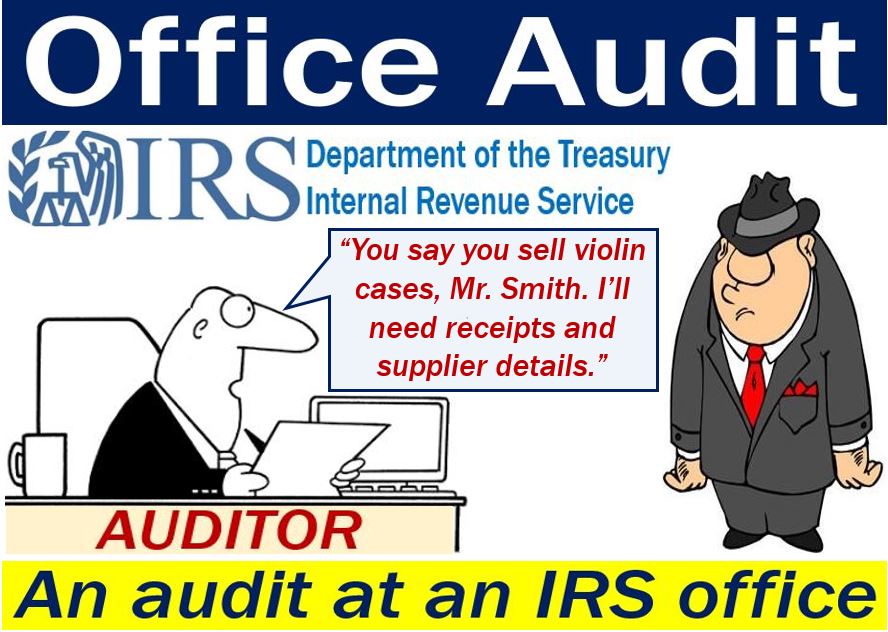Office audit – definition and meaning
An office audit is an audit that the IRS manages at one of its offices. IRS stands for Internal Revenue Service; the United States’ tax collection agency. An office audit contrasts with a field audit, which takes place at the taxpayer’s place of business, home, or accountant’s office. In a correspondence audit, the IRS and taxpayer communicate by post. Before any type of audit, the IRS contacts the taxpayer by post.
Do not confuse the term with Audit Office, which is an official organization that monitors government spending.
“The IRS manages audits either by post or through an in-person interview to review your records. The interview may be at an IRS office (office audit) or at the taxpayer’s home, place of business, or accountant’s office (field audit).”
The office audit aims to make sure that taxpayers are reporting their incomes and profits accurately. It also aims to ensure that taxpayers are paying the correct amount of tax.
The IRS may select a particular taxpayer for audit at random. It may also target a taxpayer because it suspects there are errors in its taxpayer’s return.
An audit is a formal inspection or examination of a person’s or company’s accounts.

Why an office audit?
The IRS uses an office audit when the issues are too large for an audit by post but not large enough for a field audit.
Office audits typically involve issues with Schedule A, Schedule C, or Schedule E. In other words, issues with itemized deductions, business profit/loss, or rental income/expenses respectively.
A single issue in one of the three Schedules usually triggers the audit. However, it can rapidly expand to other areas if the auditor believes that the taxpayer’s return may have other problems.
IRS auditors are experts
The auditor will ask the taxpayer for information regarding the specific problem under examination. There may also be questions about the taxpayer’s lifestyle, employment, and financial position.
While answering the auditor’s question, the taxpayer may unwittingly trigger a wider inspection. In other words, the auditor may widen the scope of the office audit or examine additional tax years.
According to Cross Law, office auditors are experts on tax law. They also know how to get nervous taxpayers to reveal damaging information.
Cross Law strongly advises taxpayers to protect themselves. In other words, to hire a tax attorney to represent them in the office audit.
Correspondence, field, and office audit
There are three types of IRS audits:
Correspondence audit
The correspondence audit is the most common. The IRS carries out the audit by post with taxpayers that do not have large amounts of money.
Office audit
An office audit occurs when the IRS asks the taxpayer to come to one of its offices. An IRS auditor interviews the taxpayer to determine whether certain tax claims are correct.
Field audit
Field audits are the most serious and severe of the three. However, they are also the least common.
The IRS sends an auditor to visit the taxpayer’s place of business, home, or accountant’s office. This type of audit is also the most comprehensive.
Video – An IRS tax audit
This eHow video advises taxpayers to give honest answers to any questions the IRS auditor asks. It also explains what you should do if the IRS audits your taxes.

